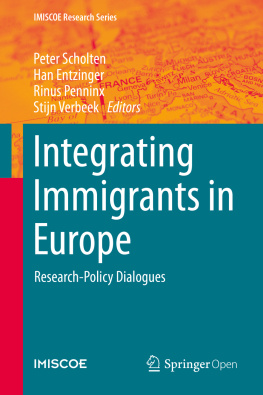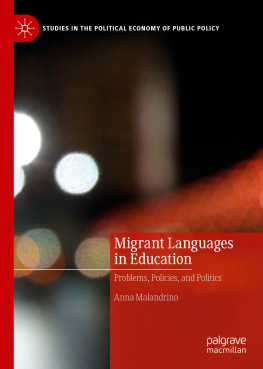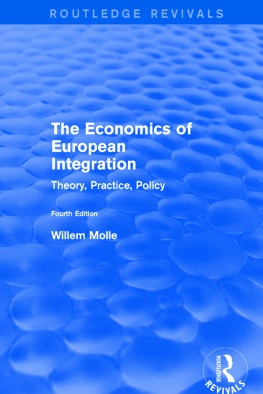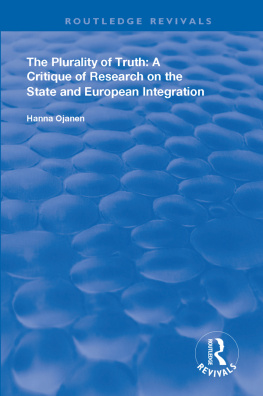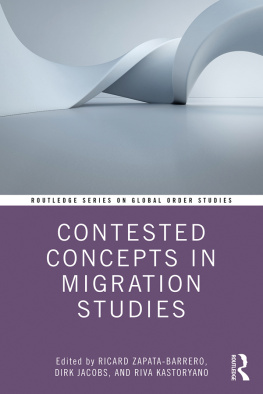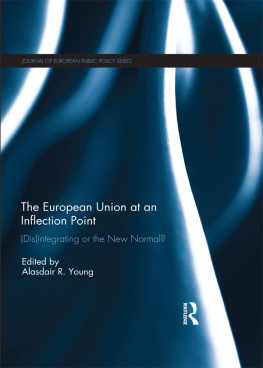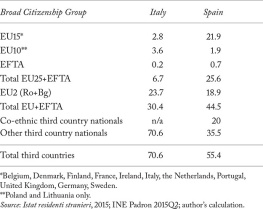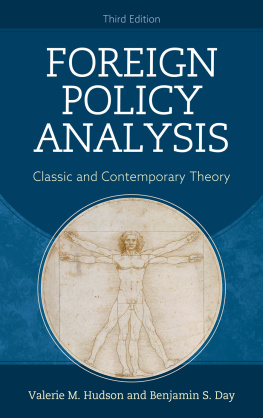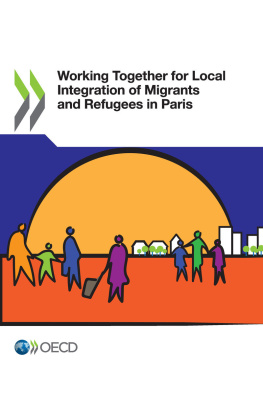1.1 Introduction
Europe has become a continent of immigration in the course of the last half century, and European societies have experienced growing ethnic and cultural diversity (Okolski ). For example, in a number of cases integration policies were first formulated at the city level rather than the national level. Since the turn of the century, however, most European states have developed some form of integration policy; after 2003, the European Union (EU) also entered this increasingly multi-level field of policy.
These local, national and EU governmental actors have often made great efforts to collect and develop the knowledge and expertise required to understand integration processes and to control and steer these. Such knowledge may be collected from existing sources or, if the required knowledge is not available, it may be solicited from the research world. It may be used for different purposes: to give policies a sound conceptual basis, to develop policy instruments and measures, or to monitor and evaluate policies.
In this context, the social sciences have played an important role in shaping public understanding of immigrant integration processes, and in many cases also in shaping government policies. When this started to happen and the way in which this took place, however, varies from one country to another, and from city to city. The specific role of social scientists in shaping policies also varies greatly: in some cases researchers have been quite active both in the scientific process of formulating the content of policies and in the political process of getting policies established. In other cases, social scientists have distanced themselves, or have been kept at a distance, from policymaking. Between these two positions many variations also exist.
Scientists may have influenced policies, but the reverse may also be the case: policymakers may play a role in shaping the production of knowledge. Policymakers may solicit the knowledge they wish to have in many ways and with varying degrees of scientific freedom for researchers.
Major differences exist between European countries in the way relations between policy and research on immigrant integration have evolved. Nowadays, however, a feature common to many European countries is that the body of scientifically-based knowledge on immigrant integration has increased substantially, while at the same time public authorities seem to have become less interested in making use of the assembled knowledge. The current relationship between migration research and policymaking seems to have led to a certain disenchantment about research-policy dialogues. Although the idea of evidence-based policymaking has gained wide recognition discursively, strong evidence also exists that politicians and policymakers often use scientific research for symbolic rather than instrumental purposes (Boswell ).
At the same time, various scholars have indicated their disenchantment about the policy-driven orientation of research in this area and the lack of theoretical development in this research field (Favell ).
This book aims to develop deeper insights into how research and policymaking in the field of migrant integration have developed historically and how this interrelationship plays out in the strongly politicised climate of opinions on migration in Europe. We do this firstly by developing a conceptual frame for analysis of research-policy dialogues (in this introductory chapter). This is followed by a comparative analysis of empirical cases in the rest of the book: Part I presents comparative case studies of different forms of dialogues and their functions, while Part II systematically analyses the development of research-policy dialogues in seven national cases, as well as at the EU level. In Part III (Chap. ) we compare the main findings of this book and try to find answers to the hypotheses formulated in this introductory chapter.
1.2 Conceptualising Research-Policy Dialogues
For the purpose of this book, research-policy dialogues are defined broadly as all forms of interaction between researchers and policymakers in the domain of immigration and immigrant integration. The term dialogues is used to refer to the reciprocal nature of research-policy relations; we are not just looking at how research is used in policymaking, but also how the policy context and the dialogues influence research (in size, orientation and content: the production of knowledge). In addition, the term dialogues is meant to capture the very diverse forms that research-policy relations may take. In some cases, research-policy dialogues evolve around a strongly institutionalised research-policy nexus, for instance through formal research or advisory committees. In other cases research-policy dialogues are much less institutionalised and take more informal and indirect forms, for example through personal networks, through the media, or through other ad-hoc channels.
Since we intend to study research-policy dialogues empirically, we do not sharply define at the outset what counts as research or knowledge within these dialogues. In fact, establishing what type of research or knowledge is produced and communicated in research-policy dialogues is an interesting empirical question. For instance, whether quantitative or qualitative-conceptual research is produced and used tells us something about the nature of the research-policy dialogue that is taking place. Conversely, the policy side of these dialogues is not monolithic either. Research and knowledge can be in demand at different locations and at different levels of government (national, regional, local, supra-national) for different purposes (policy development, implementation, evaluation or political debate). This has consequences for what is defined as relevant knowledge (which will be discussed in more detail in Sect. ).
In our analytical approach we distinguish three aspects of research-policy dialogues. First, we will explore and analyse the concrete structures of research-policy dialogues ( dialogue structures ). These are the formal, and also the informal, arrangements through which knowledge is exchanged, and through which decisions on knowledge production and the relevance of knowledge for policy, are communicated. Secondly, we will look at cultures and practices of knowledge utilisation in policy processes ( knowledge utilisation ). Here we take the perspective of policymakers and analyse what role is assigned to researchers and what function is attributed to knowledge and research. Thirdly, taking the perspective of researchers, we will look at cultures of knowledge production in the field of migration research itself ( knowledge production ).
These three aspects of research-policy dialogues have been dealt with separately in the migration literature. In the area of dialogue structures, for example, Florence and Martiniello (). However, the interconnections between these three aspects have not yet been dealt with. The key objective of this book is to bring together these literatures and explore how the relations between these three aspects can be conceptualised and analysed empirically.

